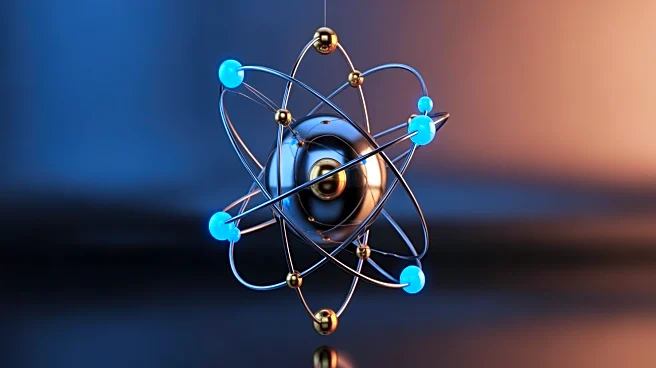What's Happening?
The United States and Saudi Arabia have finalized a significant civilian nuclear energy agreement, marking a historic moment in bilateral relations. The deal was announced during Saudi Crown Prince Mohammed bin Salman's visit to Washington, D.C., his first
in seven years. U.S. Secretary of Energy Chris Wright highlighted the agreement's focus on civil nuclear cooperation and nonproliferation, emphasizing the role of President Trump's vision in fostering peace and prosperity. The partnership aims to bring American nuclear technology to Saudi Arabia, enhancing economic ties and regional stability.
Why It's Important?
This nuclear deal represents a strategic alignment between the U.S. and Saudi Arabia, potentially reshaping Middle Eastern dynamics. It underscores the U.S.'s commitment to nonproliferation while expanding its influence through nuclear technology exports. The agreement could bolster economic growth and energy diversification in Saudi Arabia, reducing its reliance on oil. For the U.S., it strengthens geopolitical ties and opens avenues for American businesses in the region. The deal may also impact global nuclear energy markets and diplomatic relations with other Middle Eastern countries.
What's Next?
As the deal progresses, both nations will focus on implementing safeguard agreements and ensuring compliance with international nuclear standards. The partnership may lead to further economic and technological collaborations, influencing regional energy policies. Observers will watch for reactions from other Middle Eastern countries and global stakeholders, assessing the deal's impact on regional stability and international nuclear diplomacy.

















